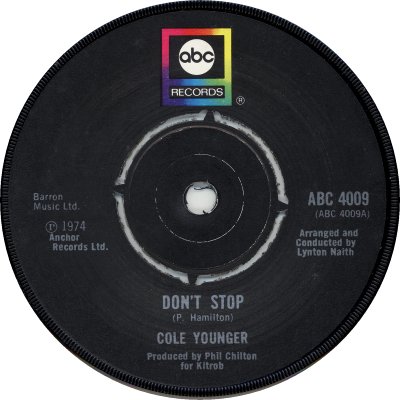
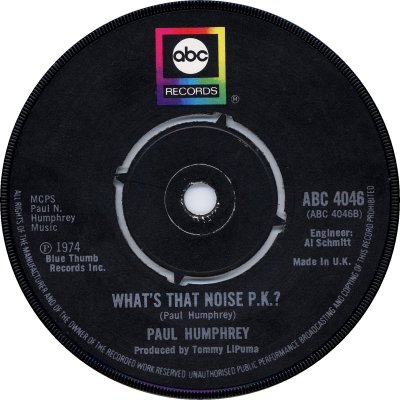
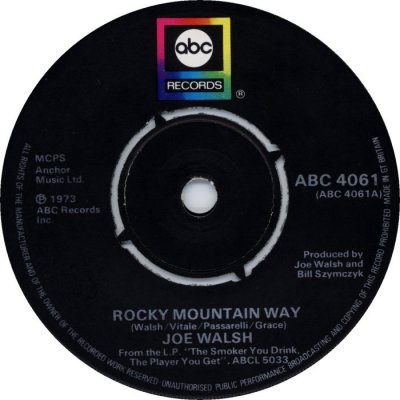
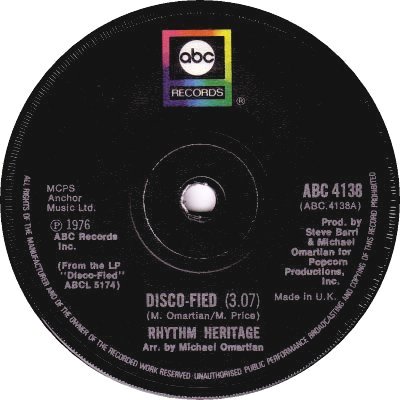
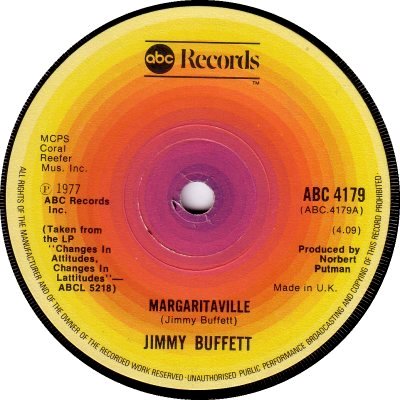
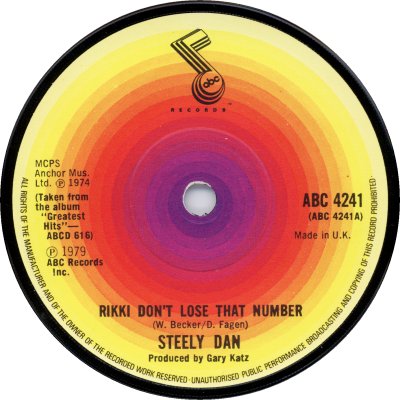
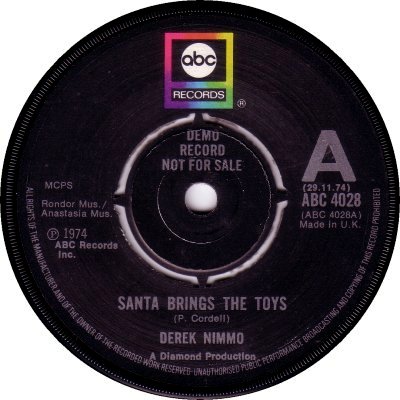
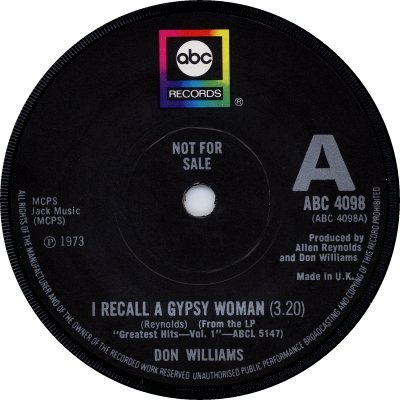
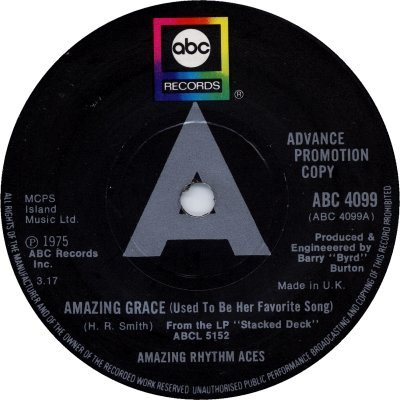
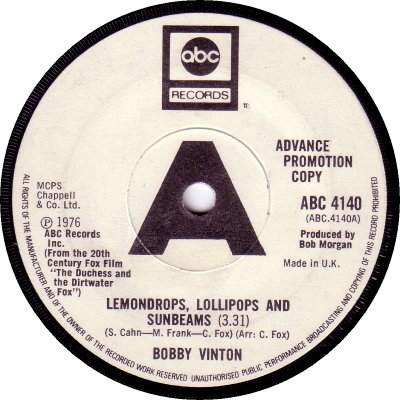
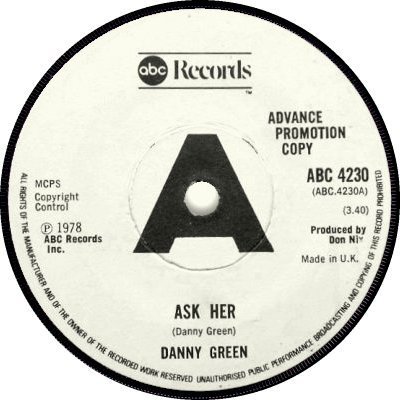
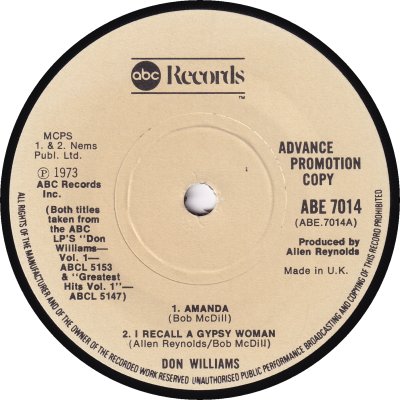
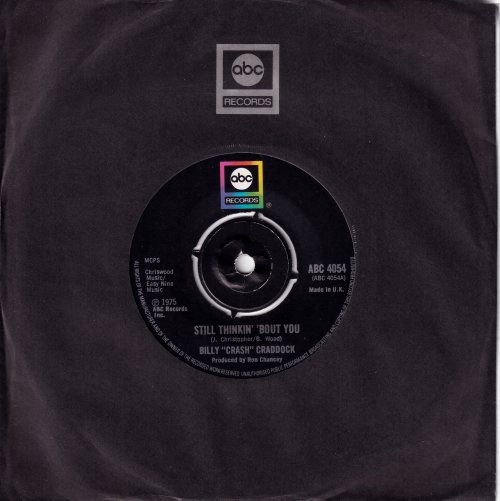
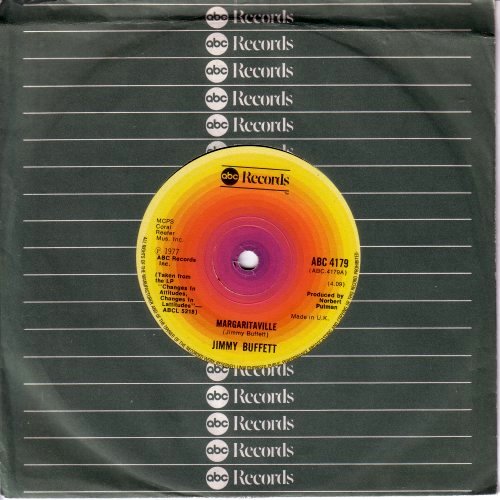
American. In 1950 Paramount Pictures Corporation split up into Paramount Pictures and United Paramount Theatres. UPT joined up with the American Broadcasting Company in 1954, to form ABC/Paramount; in 1955 ABC/Paramount formed the AM-PAR recording company, which issued records on the ABC-Paramount label. A name change followed, in 1962, when the 'Paramount' part was dropped; another took place in 1967 when ABC bought Dunhill Records and its record division became ABC/Dunhill. Further expansion followed in 1974, when the company acquired Gulf & Western's entire record operation, including the Paramount, Dot, Blue Thumb and Famous labels (q.v. all). ABC/Dunhill also boasted a Jazz imprint, Impulse, and a Rock one, Probe (q.v. both), as well as an album-only Classical one, Westminster. In February 1979, however, the company found itself on the other end of a take-over. It was sold to MCA, and in the summer its label ceased to exist, the artists on it being transferred to MCA's own label.
As far as Britain is concerned, ABC material was licensed to EMI for a considerable time. The company was one of the first to sign a licensing agreement with EMI, in 1958 ('Billboard', 29th October 1970). Its records came out on His Master's Voice until the late autumn of 1967; in December of that year they were transferred to the Stateside label. Product from the Dunhill label in the States took a different path: it was licensed to RCA originally, and it stayed will them until EMI acquired the rights to it in the summer of 1968. From that point Dunhill records were released on a dedicated Stateside Dunhill label (q.v.), but there was a trademark clash with the Alfred Dunhill cigarette company ('Record Retailer', 11th June 1969). As a result EMI phased out the 'Dunhill' part of the name, and it began putting Dunhill records out on a special orange-coloured Stateside label from 23rd of January 1970. Around that time ABC/Dunhill established an office in the UK. 'RR' of the 18th of October 1969 said that the new office would be up and running by the end of the year but that it would not be able to use the ABC name. Not much in the way of product by UK artists seems to have resulted from the development. The introduction of the new office didn't affect the licensing agreement with EMI, which must have been satisfactory as it was renewed the following year. Then in the summer of 1970 'RR' of the 22nd of August was able to reveal that material from the American ABC and Dunhill labels was going to removed from the Stateside labels and merged: ABC/Dunhill's young and unsuccessful 'progressive' label, Probe, was to be updated and turned into an outlet for all of the company's issues. The article pointed out that any attempt to introduce an actual ABC label would have run into more trademark problems, this time with the ABC Cinemas group. The first single on the reformed Probe label came out in October 1970, and Probe went on to serve as the vehicle for ABC/Dunhill's releases for several years.
In 1974 ABC/Dunhill was at last able to introduce the ABC label to this country. By that time ABC Cinemas had been taken over by EMI, and presumably the threat of legal action over the ABC name had subsided. The company joined forces with ex-WEA man Ian Ralfini to start Anchor Records (q.v.) in January; 'Music Week' of the 19th of that month said that the plan was for Anchor to have its own label, which was to be run separately from ABC/Dunhill's and was to be in competition with it. The new labels were expected to debut in a few months, but there appears to have been a delay - ABC made its debut in July 1974, numbering its singles in an ABC-4000 series, but Anchor didn't see the light of day till September. Both were handled by EMI. With the arrival of ABC, Probe was rendered redundant and was discontinued, its final single being released in May. With the consent of EMI the first fifty albums to be released on ABC were reissues of material that had previously been out on His Master's Voice, Stateside or Probe ('MW', 14th September 1974).
On the 1st of October 1975 Anchor moved to CBS, and ABC naturally went with it. The new deal was for pressing and distribution ('MW', 20th September), as Anchor had developed its own sales force by that time. The two labels stayed with CBS until a few months after the purchase of ABC by MCA, after which all of the ABC artists were moved on to MCA and the ABC label was discontinued. 'You Can Do It' b/w 'Happy Feet' by Al Hudson & the Soul Partners was intended to be the last ABC single, according to 'Music Week' of the 23rd of June 1979, but it was delayed and came out in August on MCA (MCA-511). Ironically it was a hit, reaching the No.15 spot. ABC had enjoyed other hits during the five years or so of its existence as a label, their variety a reflection of the company's broad catalogue, which covered Soul, Disco, Country, Pop and Rock. Steely Dan provided four Chart entries but only tickled the Top 20 with one of them, and Country artist Don Williams managed a couple of decently-sized hits in 1976, while Top Ten entries were provided by Eddie Holman with 'Lonely Girl' b/w 'It's All In The Game' (ABC-4012; 10/74), Marilyn McCoo & Billy Davis Jr. with 'You Don't Have To Be A Star' b/w 'We've Got To Do It Again' (ABC-4147; 10/76), and - on the Hot Buttered Soul / ABC label (q.v.) - the Isaac Hayes Movement, with 'Disco Connection' b/w 'St. Thomas Square' (ABC-4011; 3/76). The company enjoyed a solitary No.1, courtesy of 'Float On' b/w 'Everything Happens For A Reason' by The Floaters (ABC-4187; 7/77).
ABC went through a couple of label designs and three different logos; they were the same ones that were used for the American issues but there was a delay in the changeover dates between the USA and here. The first, black, version lasted until the autumn of 1976 and was used in both the EMI and CBS periods. There were variations in the font during the EMI years (1, 2, 3) along with some other minor changes. Initially there were none of the usual perimeter 'restrictions' (1) but they were added from ABC-4011 onwards (2) and for re-pressings of earlier singles. From ABC-4059 some singles had 'Made in Gt. Britain' added at the end of that text (3); around half of them were given that treatment, but there doesn't seem to have been any rule as to which got them and which didn't - 4071 and 72 had it, 73 didn't, 74 did, 75, 77 and 78 didn't, 79 and 80 did, and so on. The font changed again with the move to CBS (4). In addition EMI pressings generally had narrow dinking perforations, while CBS pressings usually had none. During the CBS era the 'Made in Gt. Britain' part of the perimeter text was dropped. In October 1976 the sober but tasteful black label was replaced by a more exuberant multicoloured one with a changed logo (5). Singles with the new label usually came in a green sleeve (14), but the old black sleeve (13) does seem to have been used with multicoloured labels every now and again, presumably using up old stock. The change had taken place two years earlier in America. The 'note' logo (6) appeared in February 1979 and was used for the final dozen or so issues - again, it had been used for a while in the States before it surfaced here, but this time the delay was only one of some six months.
With regard to demos, the first black label (7) is from the EMI era, and is marked in the usual EMI fashion; after the move to CBS promos kept the EMI-style markings for around three months. The markings then stuttered briefly: a few singles around ABC-4096 kept the small silver 'A' but either dropped the 'Demo Record' and kept the 'Not for sale' (8) or omitted the wording altogether. With ABC-4099 things settled down: the silver 'A' grew in size, gained a point and moved to the middle, while the wording changed to 'Advance Promotion Copy' and moved to where the 'A' had been (9). This design underwent a change of colour to black-on-white and adopted a slightly smaller flat-topped 'A' (10) with ABC-4111; it stayed that way until around ABC-4146, when, as happened with the issue labels, the boxed logo changed to one that was enclosed in parallel lines (11) - thanks to John Timmis for that scan. 'Note' logo singles appear to have kept the 'parallel lines' style of demo label. Several items from a 1977 'Four Tracks From...' series of 12" EPs were pressed in 7" form, apparently for promotional purposes; most had promo labels (12) but the Steppenwolf one came with an ordinary issue label. The 7" EPs were numbered in the ABE-7000s, whereas the 12" ones were in the ABE-12000s.



Copyright 2008 Robert Lyons.

